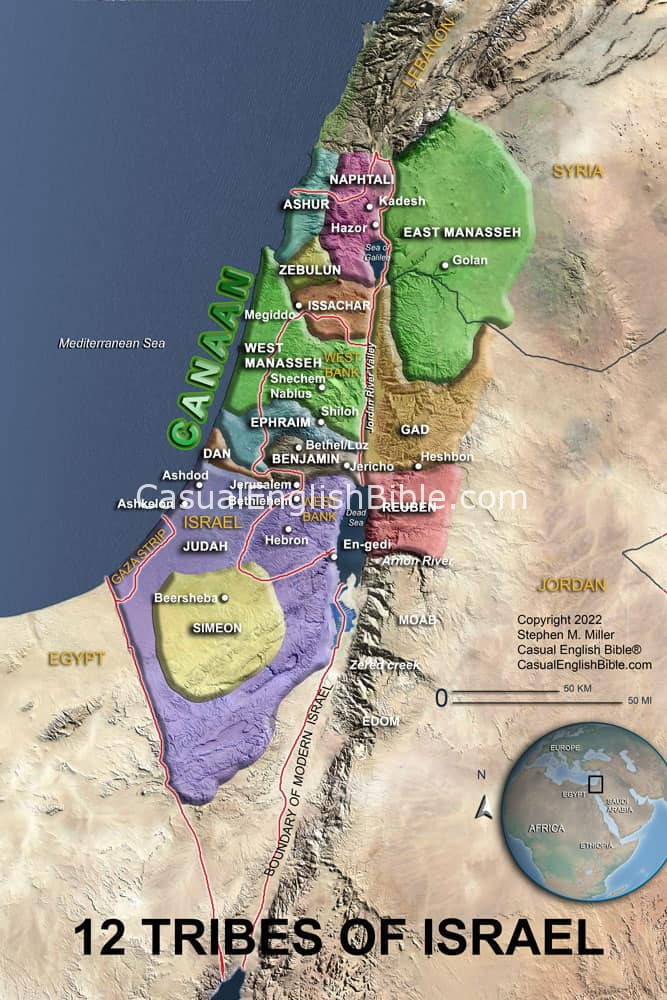Isaiah 2
The LORD will shake the earth
The world will go to Jerusalem
1This is a message from Isaiah, son of Amoz. It’s about Judah and Jerusalem. [1]2
There’s coming a time
When the mountain under the Lord’s Temple
Will rise above the highest mountains of all.
Nations will come, crowding to see it.
“Let’s go to the LORD’s mountain,
To God’s Temple in Jerusalem.
Let’s have him teach us what he wants us to know
So we’ll know what he wants us to do.
Then we can live on good terms with him.”
We can learn this in Jerusalem.
The LORD will teach us there
4The LORD will settle arguments between nations.
He’ll do that for people everywhere.
Nations will melt swords of war into plows of peace, [2]
And lethal spears into pruning shears.
Nations won’t fight each other,
Or train for war anymore.
Israel is rich and pagan
5People of Israel,
Let’s take a walk
In the light of the LORD.
The descendants of Jacob.
They welcome sorcerers from the east
And fortunetellers from the Philistine west.
They do business with pagan foreigners now.
7They have silver and gold,
Too much to count.
They have herds of horses,
With more chariots than they know.
8They’ve filled their land with idols.
They bow to figures they made themselves,
And then worship what they made.
9Shame them.
Humiliate them.
But don’t excuse them.
Find a hole in the ground
10Go find a cave,
A hole in the ground.
Hide from the LORD
And the glory of his presence that you fear.
The honored will be shamed.
The LORD wins all the praise.
12The LORD of all will pick a day [3]
To tear down the high and mighty,
Anything proud of itself, bragged up, and praised.
13Down come the cedars of Lebanon,
Towering on the mountain range.
Down come the oaks of Bashan. [4]
14Down come the mountains
High above the foothills.
15Down come the lookout towers
And every city wall built high
16Down go the ships of Tarshish. [5]
All that sails will sink.
Idols are left for the cave bats
17Braggers will be humiliated.
The proud will be disgraced.
Only the LORD wins the praise.
19Run to the caves,
To your holes in the ground,
To hide from the coming of the LORD.
He’ll come in shock and awe and majesty,
To shake everything on earth.
20On that day people everywhere
Will throw away their silver and gold.
And they’ll trash their golden idols.
Cave rats and bats can have it all:
Idols of silver and gold the people made
To worship what they did themselves.
21People will hide in caves and caverns
And cracks and crags in the rock.
They hide in terror of the LORD
And in awe of his majesty.
For he comes to shake the world.
22It’s time to stop praising people.
They suck air through their noses
And are just one breath from dead.
What about that is worth praising?
Footnotes
This first verse isn’t part of the original collection of prophecies, some say. It was written later, like the titles of many Psalms.
This is one of the Bible’s most famous word pictures of what life will be like in the future. Some say it’s a future God creates at the end of human history, or when he dramatically intervenes into human history. Others say it’s a future that people can create if they can muster the common sense, compassion, and determination. Verses 2-4 are what Bible scholars call “eschatological.” That means they refer to what many call the end of life as we know it, Judgment Day, and the beginning of what comes next.
Bible writers talk about a “day of the LORD” or “on that day” or “day of visitation” or “there’s a time coming” (verse 2). It’s day that can go in one of two directions. It can be a good day—a day God comes to save his people. It’s something to look forward to. Some scholars trace the idea back to what happened when God came to Egypt and with 10 plagues, he freed the Israelites. But it can also be a fearful day to people at odds with God. To them, it is Judgment Day. But to people on good terms with God, his arrival for Judgment Day or any other reason is welcome. The prophet Joel describes it in graphic terms as a terrible day when invaders destroy sinful Jerusalem (Joel 1:15; 2:11). But to God’s people, the “day” is the day of salvation (Joel 2:32).
Half the tribe of Manasseh settled in Gilead and Bashan, in what are now Jordan and Syria. Leaders of those families in that of half the tribe of Manasseh said they liked the land east of the Jordan River because it was good for grazing their livestock. So, Moses gave it to them (Numbers 32:33).
Location of Tarshish is unknown. It was the prophet Jonah’s destination when he tried to run away from God. Scholars often guess that it was a city in Spain or somewhere else at the opposite end of the Mediterranean Sea from the Jewish homeland. Some say it was a Phoenician colony called Tartessus, in Spain. Phoenicians were native to what is now Lebanon, but their merchant ships sailed through the Mediterranean Sea.
Discussion Questions
- Sorry, there are currently no questions for this chapter.









